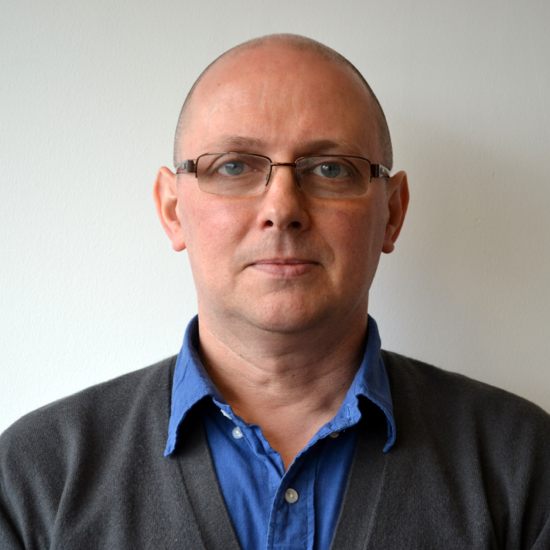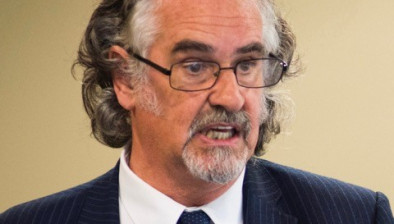Professor Ken Gibb: Carbon reduction, older tenements and the retrofit challenge

Professor Ken Gibb
CaCHE director Professor Ken Gibb gives an overview of its exciting new Scottish Funding Council project, ‘Evaluating options & outcomes in the retrofit of pre-1919 Glasgow tenement housing’, which was launched last week.
On 5 March 2020, the UK Collaborative Centre for Housing Evidence (CaCHE) announced a partnership to undertake a demonstration project evaluating the carbon reduction secured by a high-quality Enerphit retrofit of an eight-property tenement block in Glasgow. This project is funded by the Scottish Funding Council (SFC), as part of its recent Climate Emergency Collaboration Challenge. Critical to this project will be assessing the scalability and replicability of the lessons learned for Glasgow’s wider pre-1919 tenement stock.
CaCHE has a wide-ranging agenda organised around seven themes and cross-cutting priorities. While we have only invested in one major climate change project so far (a post-doc fellowship concerned with modelling the decarbonisation of the UK housing stock), we recognise the importance of the climate emergency agenda to housing policy and practice. Consequently, when an opportunity arose to bid for the Climate Emergency Collaboration Challenge fund, in partnership with local Glasgow partners, we jumped at it.
The timing of the call is closely related to the climate emergency stance of the Scottish Government but also, of course, the United Nations COP26, which is due to take place in Glasgow in November.
The partnership for this project grew organically. Southside Housing Association contacted us about an empty eight-unit one-bed tenement block in Glasgow’s Southside (previously private rented). We saw this funding opportunity as a chance to undertake a multiple evaluation replicability study, based on construction works they plan to carry out in partnership with Glasgow City Council. John Gilbert Architects, and the construction contractor, CCG Ltd, also came on board, in addition to fellow academics from Strathclyde University and the University of Glasgow. The work will aim to raise the standards of the property to an EnerPHit standard, a Passivhaus refurbishment standard (Passivhaus Trust supported our proposal).
Southside Housing Association and Glasgow City Council are keen that we evaluate this demonstration project and assess its replicability and feasibility for other models of older tenements across Glasgow. First, we must undertake a careful assessment of the building performance, carbon and thermal efficiency changes brought on by the retrofit. This will be led by our colleague from the University of Strathclyde, Professor Tim Sharpe, working closely with architects at John Gilbert Associates. Second, CaCHE will undertake an evaluation of the project from a finance and public policy perspective, focusing on the costs and benefits of the demonstration project. Third, we will then assess the scalability and replicability of the project and link this to new and emerging models of delivering and funding retrofit of older tenements. Finally, we will embark on a major programme of knowledge exchange and dissemination to different landlords, consumers, policy and practice across the city and beyond. We expect to carry out this work and its dissemination over the next 10-12 months.
This is an exciting but daunting project. Above all else, we face four interdependent challenges:
- The tenement challenge: we are fortunate to have a project where eight empty properties are under the sole control of one housing association. Elsewhere, we face the issue of decanting or households living in situ while work is underway. We also recognise the huge issue of multiple ownership patterns with private landlords, owner-occupiers and multiple social landlords. In some locations, urban heritage and conservation are also important considerations.
- The maintenance challenge: Glasgow’s tenements face major condition and maintenance problems, also associated with the built form and the age-old problem of common repairs. The long-term sustainability of our older tenements depends not just on squaring the carbon reduction circle but at the same time finding ways to undertake major life-extending repairs.
- The affordability challenge: a consequence of the first two challenges is that they create a major affordability problem. How can tenants on a low to moderate income, marginal landlords and stretched home-owners pay for what will be, on the face of it, expensive retrofits (let alone convince or nudge those who arguably can afford to pay their share)? New models that are incentive-compatible are urgently required.
- The behavioural challenge: finally, we need to convince people (or nudge them) to play their part making this carbon reduction a reality, unit by unit. But we also need to train and support occupants so that they make the best use of the Entrephit standard and realise the full benefits of the improvements.
These challenges are not taken lightly. But we should be clear of the alternative, which is to risk losing a large proportion of our iconic tenement stock in Glasgow and across Scotland if we cannot learn lessons, extrapolate and encourage the development of feasible and affordable funding and delivery models. The research project is an ambitious and multi-dimensional, multi-disciplinary one. It is an exciting opportunity to work on something that can make a genuine difference.
- Professor Ken Gibb is the director of the UK Collaborative Centre for Housing Evidence
This article was originally published on the CaCHE website








